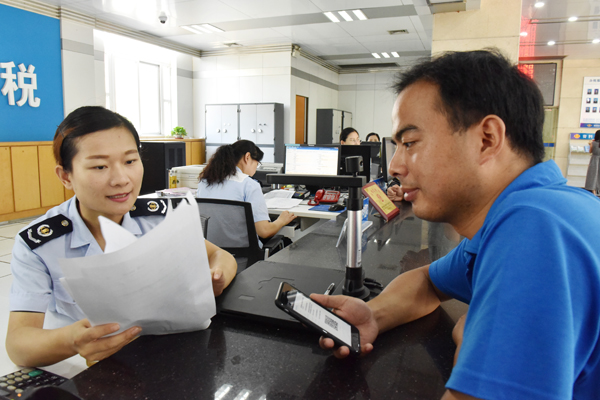Starting business to be made easier
The establishment of an integrated online administrative platform will be speeded up to make it easier for the public to access administrative services and start new businesses, the State Council decided at an executive meeting chaired by Premier Li Keqiang on July 18.
The measure is part of the efforts to deepen reform to streamline administration, enhance compliance oversight and improve services and modernize governance, said a statement released after the meeting.
According to a decision at the meeting, administrative service platforms at various levels must be switched to focusing on demands by the public, prioritize timely responses and solve difficult social problems. Government at various levels must draw up a catalogue of public services to enable standardization of procedures and requirements for accessing services.
The central government will also step up interdepartmental sharing of data, with measures to establish a unified system for identity certification, electronic seals and certificates. The website of gov.cn, the official website of the State Council, will serve as the general portal website to be connected with administrative service websites of different areas and different departments. The meeting has also made it clear that administrative items tailored for market entities and the public will be made public across the board. Public access will be enhanced and the same standard of service will be provided online or through office windows. The online channels for filing complaints will also be made more easily available.
Social entities will be encouraged to take part in the development of administrative service platforms, and more information technology will be used to increase the availability and level of convenience of administrative services, according to the statement.
Tax collection will be more efficient

A plan to reform tax collection was unveiled with measures to integrate the national and local taxation offices to create a more efficient, unified tax collection system, according to a guideline made public on July 20.
The plan, released by the general offices of the Communist Party of China Central Committee and the State Council, detailed the main tasks and principles of the reform.
According to the plan, more measures will be taken to ease tax and fee collection procedures, lower collection costs and improve the business environment.
The functions of taxation institutions will be optimized and resource allocation improved to increase tax-policy transparency and consistency.
After the integration of national and local taxation offices, there will be different responsibilities specified for taxation bodies and government authorities at different levels to mobilize central and local efforts.
The collection of social insurance charges, including basic pensions and healthcare insurance, will be under taxation authorities starting from next year, the plan said.
The plan stipulates that the reform of the taxation system will be completed by the end of this year.
HR measure will boost employment
The State Council has approved an interim regulation on the human resources market to promote employment and entrepreneurship.
According to the regulation, the country will establish a unified and open human resources market, and the market will play a decisive role in the allocation of human resources. The development mechanism for human resources will be refined to spur the vitality for creativity and entrepreneurship.
Public human resources service agencies cannot charge for services such as publishing information about supply and demand of human resources, employment aid, unemployment registration, guidance on employment and entrepreneurship.
Employers should provide credible and lawful information without any bias regarding ethnicity, race, gender or religion in their job recruitments, the regulation said.
Local governments or agencies cannot restrict the movement of human resources, either in terms of household registration, birth place or identity, according to the guideline.
The regulation will take effect from Oct 1 this year.
